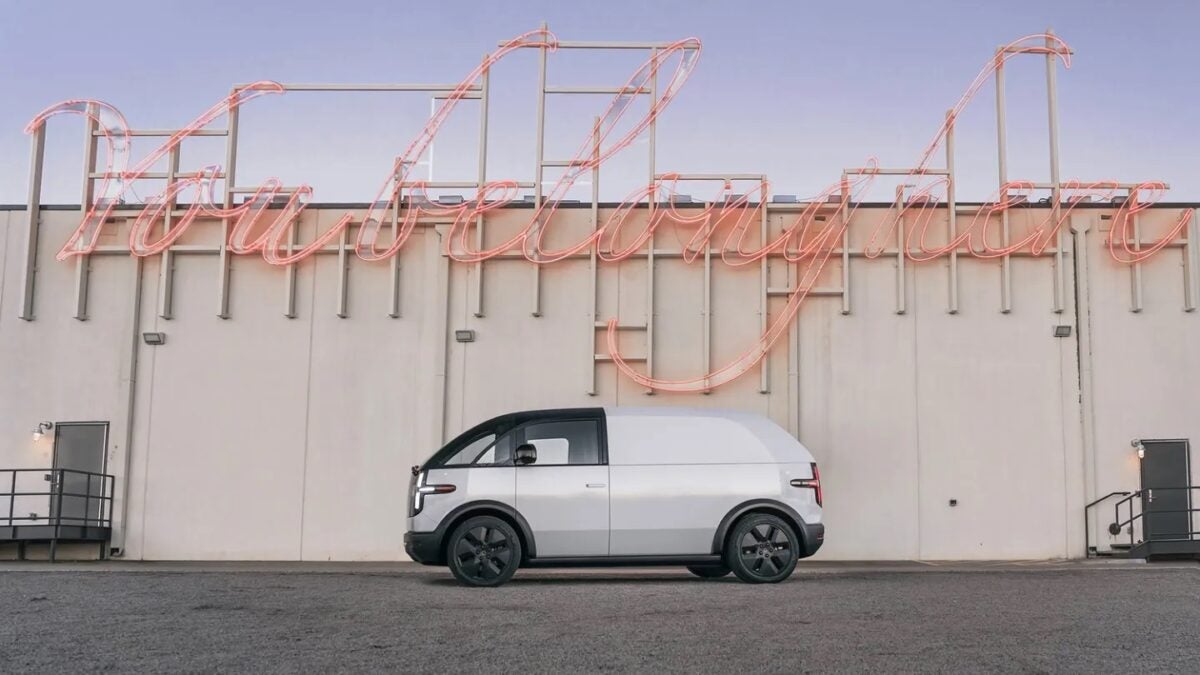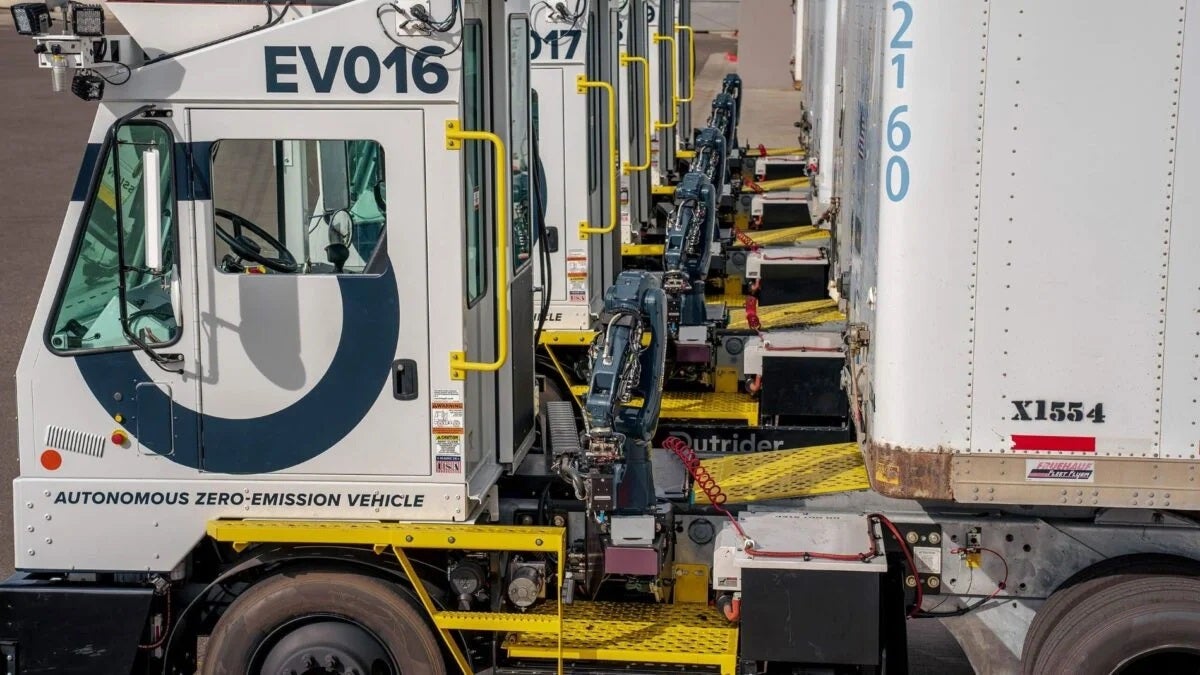Kodiak Robotics strikes first in the driverless truck commercialization race
The Permian Basin, known for its huge deposits of oil and natural gas, now boasts the first successful customer launch for driverless truck delivery operations On Friday Kodiak Robotics and Atlas Energy Solutions announced that Atlas completed the delivery of 100 loads of proppant with two RoboTrucks equipped with Kodiak Driver, Kodiak’s self-driving system.
The RoboTrucks are part of Atlas’s launching of the Dune Express, a 42-mile autonomous conveyor belt in the desert that transports sand from Kermit, TX to a facility in eastern New Mexico. The Atlas autonomous RoboTrucks then transport frac sand to customers across the Delaware Basin. This is part of a larger effort by Atlas to automate its entire supply chain.
Kodiak Robotics’ initial driverless operations with Atlas, announced last July, involved Kodiak making deliveries with Kodiak-owned trucks. The release notes Atlas is now able to complete its own driverless deliveries across the 75,000 square mile Permian Basin in West Texas and Eastern New Mexico
Don Burnette, Founder and CEO at Kodiak said in the release, “this is an incredible moment, for us and for the autonomous trucking industry as we have officially delivered a commercial RoboTruck to a customer and launched commercial operations.”
Atlas is expected to expand its RoboTruck operation over the course of this year with Kodiak announcing the opening of an 18,000 square foot facility in Odessa, Texas to help support the operations.
Looking ahead, Kodiak looks to extend its safety case to highways for its long-haul customers.
Electric vehicle startup Canoo files for bankruptcy, ceases operations

The medium-duty electric vehicle space continues to get smaller. Seven-year-old electric vehicle startup Canoo has filed Chapter 7 bankruptcy and announced an immediate halt to operations. A press release noted the liquidation process is being overseen by a bankruptcy trustee in the Delaware Bankruptcy Court.
Despite its partnerships with NASA, the Department of Defense, the U.S. Postal Service, the state of Oklahoma, Walmart and other groups, the company struggled to secure the financial backing to sustain operations. The bankruptcy filing cites unsuccessful attempts to get financing from the U.S. Department of Energy’s Loan Program Office as a significant factor leading to Canoo’s insolvency. Nor did efforts to obtain capital from foreign sources stave off bankruptcy. Canoo had total liabilities exceeding $164 million against approximately $126 million in assets.
Leading up to the bankruptcy, Canoo faced numerous challenges that compounded its financial instability. In the final months before the filing, the company furloughed its remaining employees and idled its factory in Oklahoma City. Despite having agreements to deliver electric vans to high-profile clients, Canoo struggled to ramp up production and secure broader market adoption.
An added issue came from executive departures and strategic pivots, with CFO Greg Ethridge and general counsel Hector Ruize resigning last October. The pivot from consumer sales to commercial fleets also caused issues from shifts in production strategies and added higher operational costs. Regulatory filings indicated that the company borrowed substantial funds from Aquila’s financial firm, including a loan of approximately $1.2 million at an 11% interest rate and an additional $2.7 million later. These loans were secured by assets located at Canoo’s Oklahoma City facility. Finally a reverse stock split was not enough to change it’s financial fortunes.
Outrider deploys reinforcement learning AI in its autonomous yard trucks.

Outrider, an autonomous yard operations leader recently announced an industry-first deployment of advanced reinforcement learning (RL) techniques across its customer sites. FreightWaves spoke with Andrew Smith, founder and CEO of Outrider about what the release means for the startup and how it’s taking the humble yard dog to new heights.
Outrider noted in the release that incorporating the RL techniques increased path planning speed by 10x and enabled the Outrider System the ability to move freight more efficiently and safely through crowded, chaotic and busy distribution yards. Smith adds that right now their network represents about 20% of all yard trucks operating in North America with many customers invented in pilot operations since the early days of the company back in 2017.
“Where we are learning and where we are applying these AI techniques is across the entire set of aspects that are not just driving the truck but all the other manual tasks that have to take place in a yard,” said Smith.
With that training data, the next step is to reinforce positive behaviors and interactions. Smith notes that some preferred behaviors like following traffic rules and maintaining appropriate distances from both a safety standpoint and driver comfort standpoint are two examples where RL can take the software from a traditional 90% there to the mid 90%, with the systems allowing the AI to handle more complex scenarios.
The same RL techniques that teach the autonomous yard dog how to navigate the yard, back into spaces and shuttle trailers also extend down to operating the robotic claw which needs tactile precision to hook and unhook trailer air lines.
Smith highlights that while many companies have tried to modify the trailer, Outrider’s system works with modified and unmodified units courtesy of the AI and robotic arm.
Looking ahead 2025 looks to be a big year for Outrider, after securing multiple patent grants and raising a $62 million Series D financing back in October 2024. That brings the total equity capital raised to date to over $250 million.
Briefly noted …
Electric charging station maker Chargepoint announced two solutions to combat charger vandalism, the first being new cut-resistant charging cables, and ChargePoint Protect, an alarm system to increase security. Charing station reliability is a big challenge, with a J.D. Power report in May 2023 showing that 20.8% of consumers say they show up at a public charger that does not work.





















